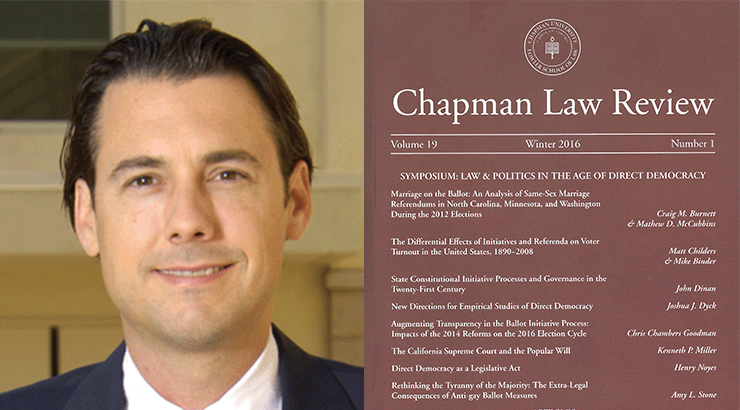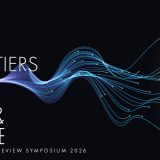
Fowler Law Professor Henry Noyes Publishes “Direct Democracy as a Legislative Act”
October 11, 2016
Chapman University Dale E. Fowler School of Law Professor Henry Noyes’s article “Direct Democracy as a Legislative Act“ was recently published in Volume 19 of the Chapman Law Review.
From the abstract:
Direct democracy has been referred to as “The People’s Law” and “Citizen Lawmaking.” The actors who engage in acts of direct democracy have been referred to as “Citizen Lawmakers” and “Citizens as Legislators.” Does that mean that citizens who engage in acts of direct democracy are literally (and legally) “legislators” undertaking legislative acts? This Article argues that, at least in certain situations, the answer is “yes” and considers the implications of that conclusion.
Part I briefly discusses the history of direct democracy in the United States. Direct democracy was born out of frustration with reliance on elected representatives to legislate. Direct democracy allows ordinary citizens to legislate. Part II explains that direct democracy does not diminish some inherent, immutable power of the legislature. Instead, it is an exercise of the people’s inherent power to legislate. All power derives from the people, who can choose to delegate it to representative instruments which they create, or they can reserve to themselves the power to legislate. Several states–Arizona, California, Washington, Colorado, Oregon, and Utah–have constitutions that define the initiative and referendum as the exercise of legislative power. Part III discusses the circumstances in which direct democracy activity is a legally operative legislative act. At a minimum, the act of sponsoring an initiative or referendum petition is a legislative act. Finally, Part IV discusses some of the possible legal implications of the conclusion that direct democracy (or at least some such activity) is a legislative act. First, undertaking a legislative act does not implicate the First Amendment. Second, *200 undertaking a legislative act entails legislative immunity and a legislative privilege. Third, direct democracy as a legislative act (in some cases) will confer the official proponents with standing to defend the initiative against legal challenge.
Professor Noyes is the author of The Law of Direct Democracy (Carolina Academic Press, 2014), a truly unique resource that serves as “the first casebook on direct democracy.” Professor Noyes joined the Chapman faculty in 2005 after more than a decade as a litigator specializing in complex commercial litigation. He was a partner with Pillsbury Winthrop Shaw Pittman LLP (formerly Pillsbury Madison & Sutro) in San Francisco and was named a “Northern California Super Lawyer” by Law & Politics and San Francisco Magazine. In addition to his billable practice, he was Pillsbury’s pro bono coordinator and regularly served as an arbitrator in the San Francisco Bar Association’s Attorneys’ Fees Dispute program. Professor Noyes earned his B.A. from Northwestern University in 1990. After college, he worked for the United States Senate Judiciary Committee. He received his Juris Doctor, magna cum laude, from the Indiana University School of Law in 1994, where he was the Senior Managing Editor of the Indiana Law Journal. In 1995-96, he clerked for the Honorable Jesse Eschbach on the United States Court of Appeals for the Seventh Circuit. Professor Noyes’s research and writing focuses on rules of procedure, rules of evidence, contractual agreements governing dispute resolution, and direct democracy.

